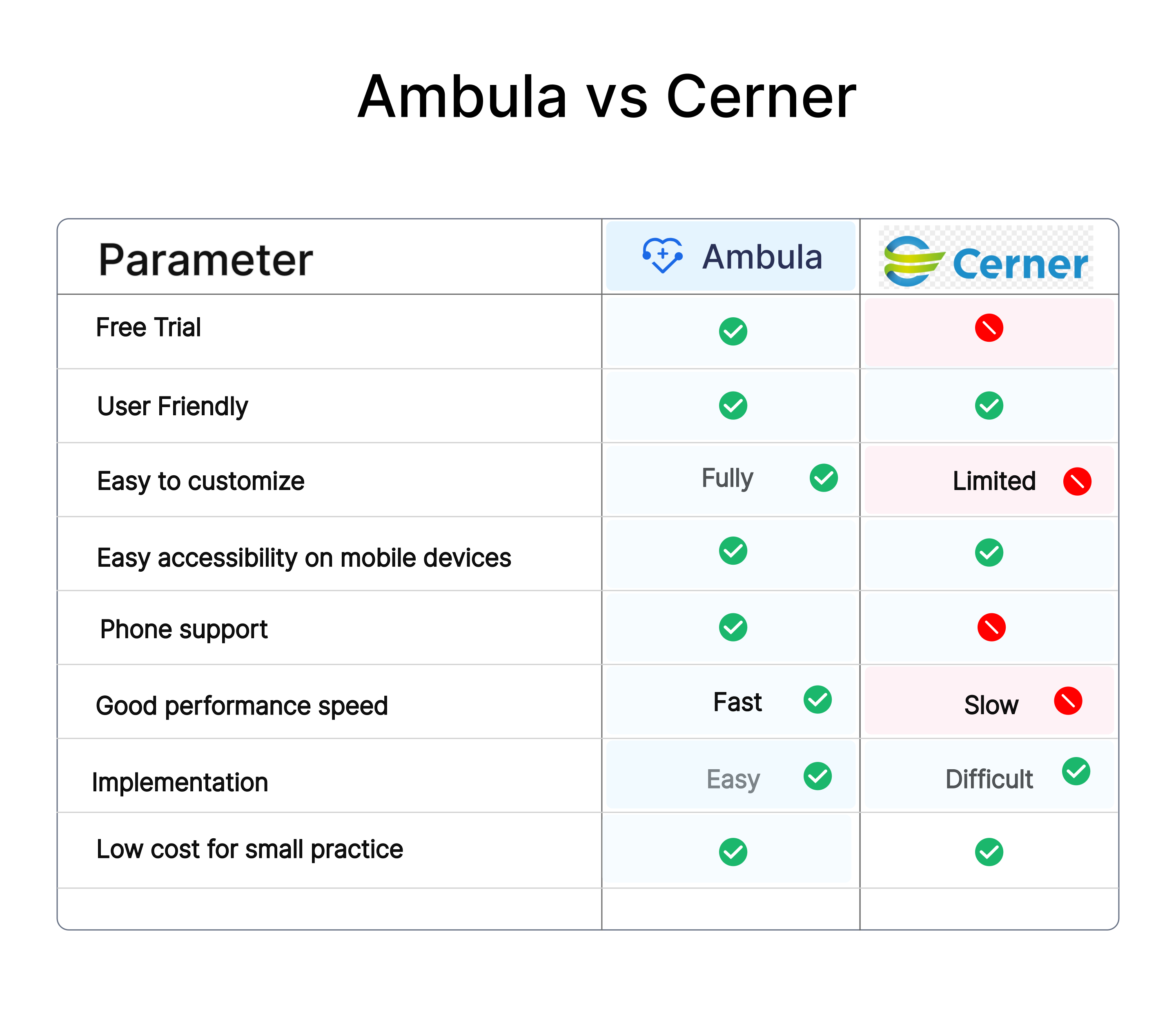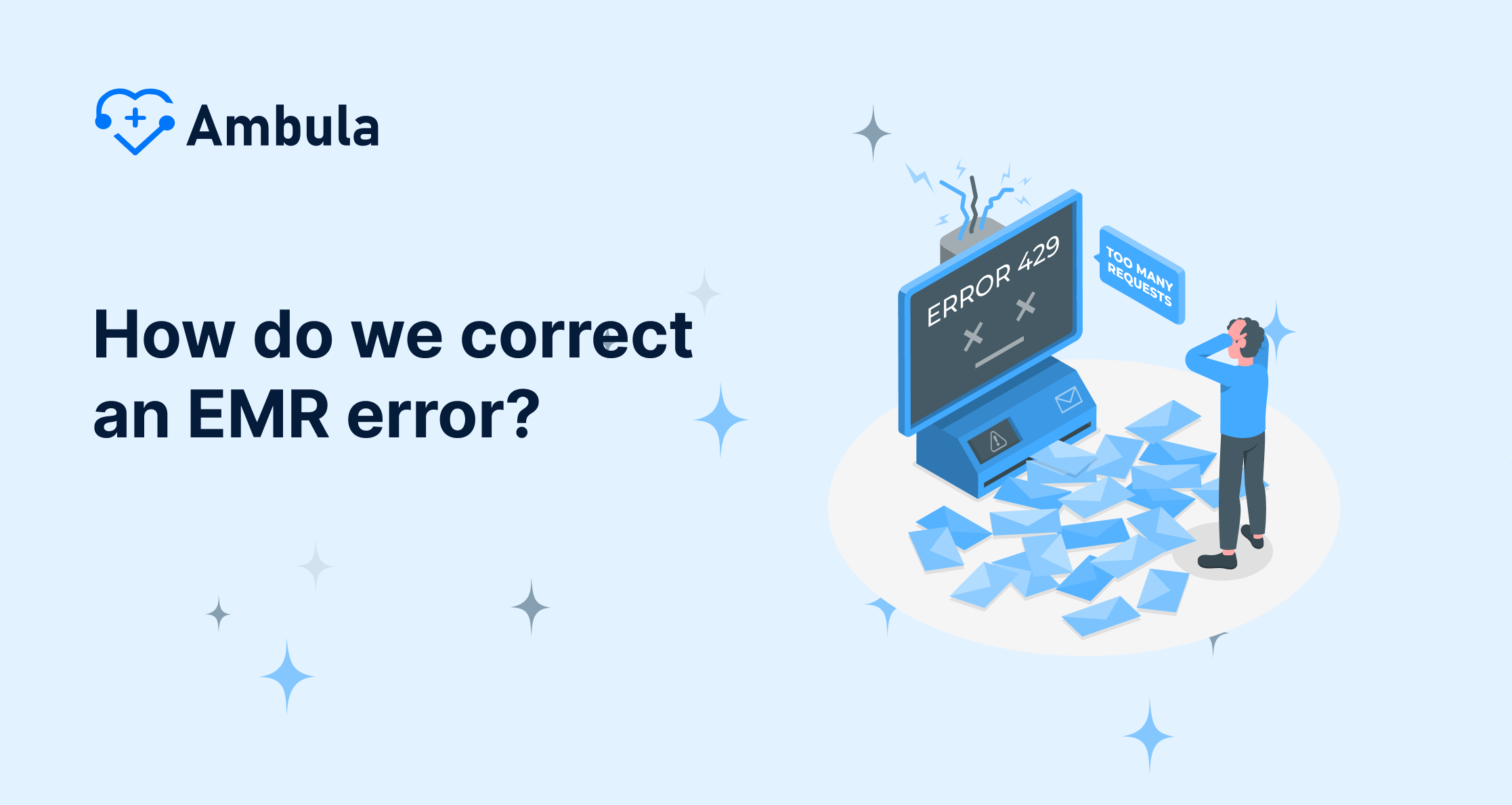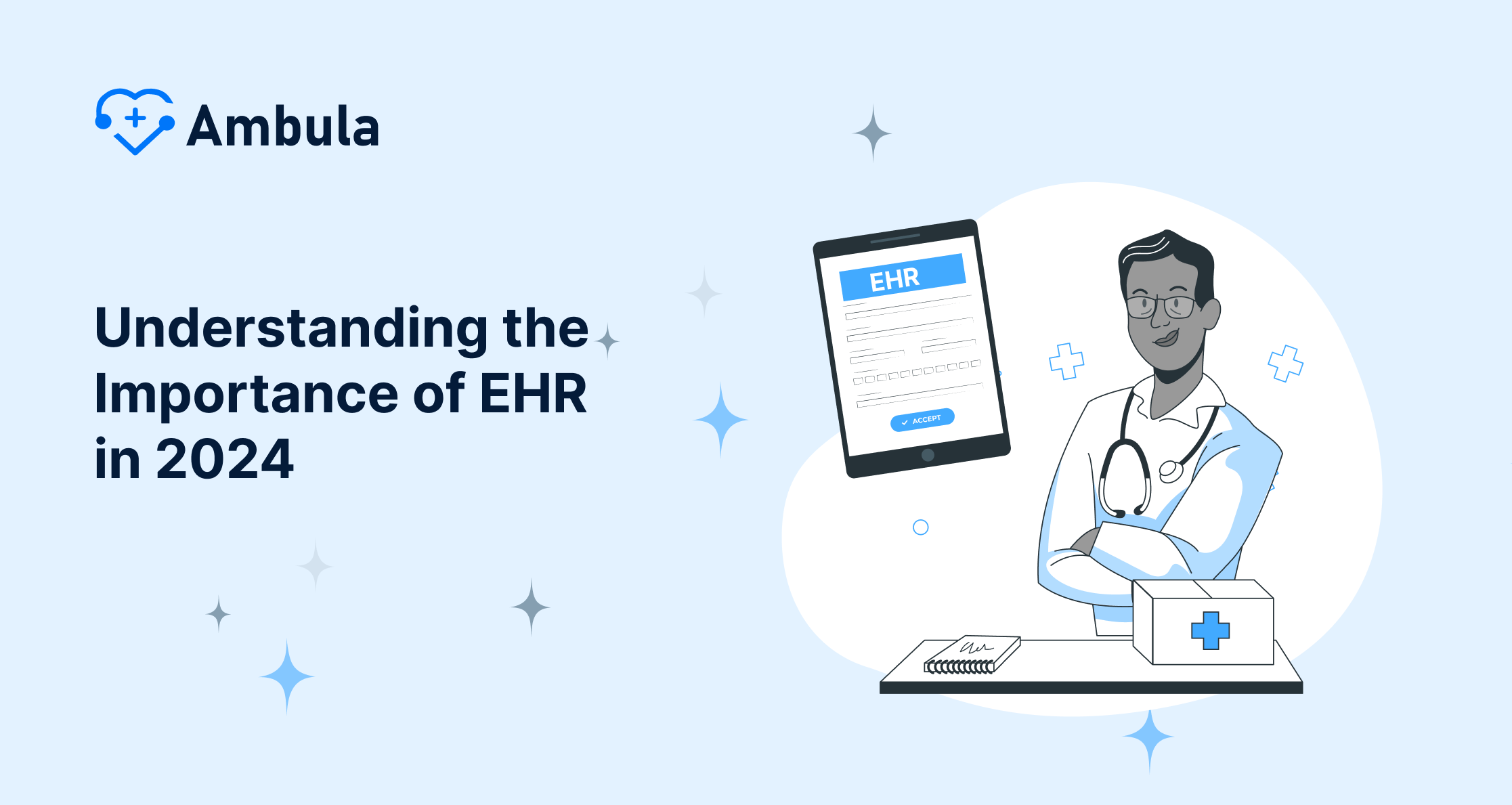Every healthcare professional understands the importance of choosing the right Electronic Health Record (EHR) system for their practice. Today, we’re diving into one popular EHR platform—Cerner EHR—to help you decide if this software is the right fit for your organization.
Cerner Corporation, a Kansas City-based company, has become a leading name in the world of Electronic Medical Record systems (EMR). With a comprehensive suite of solutions, Cerner’s EHR platform is specifically designed to enhance patient care for various medical specialties, streamline clinical workflows and improve the revenue cycle.
In this post, we’ll explore the features and benefits of Cerner EHR, the experiences of fellow healthcare professionals, and what sets Cerner apart from other health systems in the industry. Let’s jump in!
Table of content
- Meeting the diverse needs of healthcare organizations
- Streamlining patient care with Cerner’s EMR software
- Empowering practice management with Cerner EHR
- The Cerner juggernaut—partnering with CommonWell Health Alliance
- The affordability factor: Is Cerner EHR worth the investment?
- Pros of Cerner EMR
- Cons of Cerner EMR
Meeting the diverse needs of healthcare organizations
Cerner offers a range of customizable EHR solutions that cater to different types of healthcare organizations, such as large hospitals, long-term care facilities, physician practices, and smaller medical practices. The flexibility provided by Cerner ensures that the platform can support multiple specialties, with features like patient scheduling, medical billing, and lab results integration, to name a few.
One of the standout aspects of Cerner is the Cerner Millennium suite. This cloud-based, user-friendly system offers an enterprise-wide view of patient data, allowing healthcare providers to efficiently access patient information, manage workflows, and make more informed decisions. The result? Less time is spent on administrative tasks and more on delivering the best care possible.
Streamlining patient care with Cerner’s EMR software
Cerner EMR boasts several features that are aimed at improving patient care and experience. The platform offers secure messaging, allowing convenient communication between patients and healthcare providers. Additionally, Cerner’s patient portal facilitates secure access to patient records, lab results, and clinical information, empowering patients to take charge of their health.
Cerner understands the importance of offering providers evidence-based data to support their decisions. This comes in the form of powerful decision support features and integration with Clinical Practice Guidelines, which can be used across multiple specialties, resulting in better patient outcomes.
Integrating with CommonWell Health Alliance and offering predictive algorithms further cements Cerner’s place as a top EHR platform within the healthcare industry. These features enable healthcare organizations to excel in population health management and proactively engage in their patients’ healthcare, ensuring they receive the best care available.
Empowering practice management with Cerner EHR
Alongside patient care, Cerner also offers invaluable practice and revenue cycle management support. The software offers seamless integration and automation of accounting processes, payment posting, and medical billing, helping streamline healthcare organizations’ revenue cycle.
Time is money, and Cerner’s EHR systems are devoted to saving both. Providers can save time and improve their revenue cycle through search functionalities such as Patient Chart Search, which provides essential information needed for current orders and patient charts.
Aiding providers with quick access, their Cerner Charting System offers voice dictation and integration with mobile devices such as tablets and smartphones. One such mobile integration includes the Cerner PowerChart Touch, which helps healthcare providers view patient records and charts on-the-go, reducing time spent on administrative tasks and improving ROI.
The Cerner juggernaut—partnering with CommonWell Health Alliance
In 2013, Cerner Corporation partnered with several other key EHR providers to form the CommonWell Health Alliance. This initiative aimed to enhance the interoperability of patient records and data-sharing among healthcare organizations, ultimately improving patient care and experiences across the entire industry. By offering a seamless exchange of patient records, healthcare providers can reduce the time searching for patient information and gain a more holistic view of their patient’s health history.
The affordability factor: Is Cerner EHR worth the investment?
While the Cerner EHR software offers many invaluable benefits, it’s vital to consider the financial aspect. Cerner’s software suite can be quite costly; however, it is an investment many healthcare professionals believe is worthwhile.
To decide whether Cerner is right for your practice, we encourage you to gather as much information as possible, read testimonies from fellow healthcare professionals, and consult with experts in the field. One useful resource for cost information can be found on Software Advice, which offers insight into the pricing of EHR solutions.
Pros of Cerner EMR
- Comprehensive Suite of Solutions: Cerner offers products catering to various healthcare organizations, including large hospitals, long-term care facilities, physician practices, and smaller medical practices. The flexibility of Cerner ensures that the platform can support multiple specialties, making it suitable for various healthcare needs.
- User-Friendly Interface: Cerner’s user-friendly interface allows healthcare professionals to quickly adopt it, reducing the learning curve associated with implementing a new EMR system. The easy-to-navigate platform enables more efficient workflows and faster access to essential patient data.
- Patient Portal: The Cerner portal provides secure access for patients to view their medical records lab results and communicate with their healthcare providers. Empowering patients with their health information leads to better engagement and improved patient experiences.
- Integration and Interoperability: Cerner strongly focuses on integration and interoperability, which ensures seamless data-sharing among healthcare organizations. Cerner’s partnership with the CommonWell Health Alliance aids in this effort, enabling providers to access a more comprehensive and accurate view of their patient’s health history.
- Revenue Cycle Management: Cerner’s suite of solutions strongly focuses on managing the revenue cycle, including medical billing, accounting, and payment posting. Streamlining these administrative tasks increases efficiency and helps optimize healthcare practices’ financial aspects.
Cons of Cerner EMR
- Cost: Cerner’s EMR solutions can be expensive, sometimes deterring smaller healthcare organizations and practices from opting for the platform. Evaluating the initial investment and long-term ROI is crucial when deciding if Cerner is the best fit for your organization.
- Customization Limitations: While Cerner offers a range of products to cater to different healthcare needs, customization options may sometimes be limited for smaller practices or niche specialties. Providers may need to explore additional third-party plugins or integrations to satisfy specific needs.
- Software Updates and Support: Some users have reported issues with Cerner’s software updates, stating that they are not always timely and can create downtime or disruptions in their workflows. Additionally, users have noted that customer support responses can sometimes be slow, impacting the resolution of technical issues.
- Additional Training Requirements: Although Cerner has a user-friendly interface, some users have reported that the initial training wasn’t enough, leading to a reliance on outside resources or extended training periods for their staff. Depending on the organization’s size and resources, this may be a factor to consider.
Is Cerner an EMR or EHR?
Cerner is an EHR (Electronic Health Record). An EHR is a more comprehensive system than an EMR (Electronic Medical Record). An EMR typically captures information from a single provider’s office, while an EHR can be shared across different healthcare providers and organizations. This allows for a more complete picture of a patient’s medical history, which can improve the quality of care.
Given the wide array of options available, selecting the right EHR system can be daunting. However, Cerner EHR stands out with its enterprise-wide approach, user-friendly interface, and integration with CommonWell Health Alliance. Healthcare professionals who embrace the power of Cerner’s software can stay ahead of the curve, streamline clinical workflows, and ensure that their patients receive the best care possible.

Why choose Ambula over Cerner?
While Cerner offers a robust EHR solution, Ambula stands out as a modern EMR system specifically designed for the needs of today’s practices. Here’s what sets Ambula apart:
- Modern Design, Streamlined Workflow: Unlike many EMRs stuck in the past, Ambula prioritizes a user-friendly interface that simplifies data entry and streamlines workflows. This translates to significant time savings for your staff and improved overall efficiency.
- Impactful Technology: Ambula goes beyond just being EMR software. We believe in the positive impact technology can have on patient care. Their focus is on providing tools that make a real difference in how care is delivered.
- Partnership Approach: Consider Ambula a healthcare technology partner, not just a vendor. We offer ongoing support and resources to ensure you get the most out of their EMR system. Their team becomes an extension of yours, providing the support you need throughout every stage of your practice.
In short, if you’re looking for a user-friendly, impactful EMR system with a strong emphasis on partnership and ongoing support, Ambula might be the better choice for your practice.




